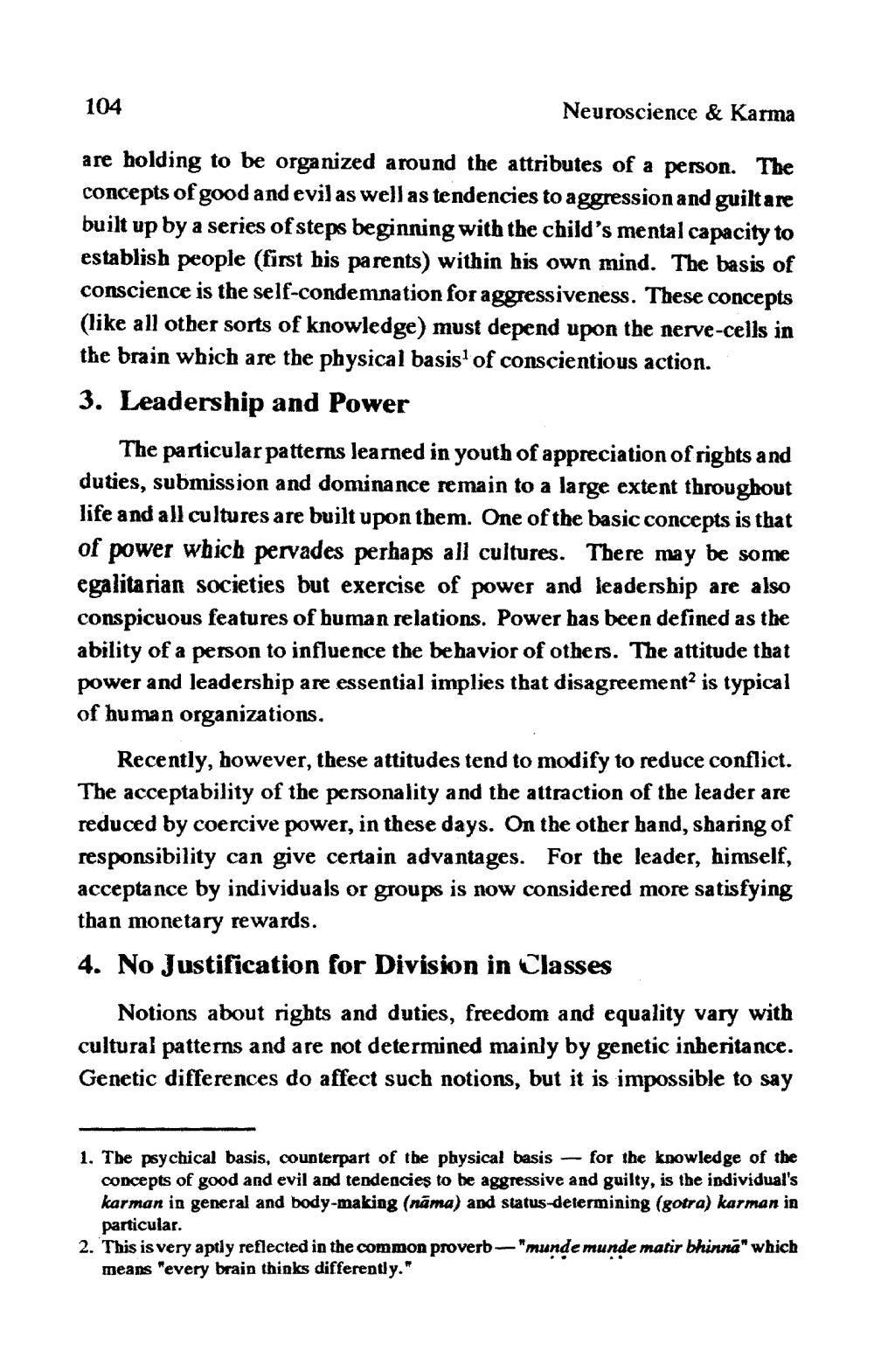________________
104
Neuroscience & Karma
are holding to be organized around the attributes of a person. The concepts of good and evil as well as tendencies to aggression and guilt are built up by a series of steps beginning with the child's mental capacity to establish people (first his parents) within his own mind. The basis of conscience is the self-condemnation for aggressiveness. These concepts (like all other sorts of knowledge) must depend upon the nerve-cells in the brain which are the physical basis of conscientious action. 3. Leadership and Power
The particular patterns learned in youth of appreciation of rights and duties, submission and dominance remain to a large extent throughout life and all cultures are built upon them. One of the basic concepts is that of power wbich pervades perhaps all cultures. There may be some egalitarian societies but exercise of power and leadership are also conspicuous features of human relations. Power has been defined as the ability of a person to influence the behavior of others. The attitude that power and leadership are essential implies that disagreement? is typical of human organizations.
Recently, however, these attitudes tend to modify to reduce conflict. The acceptability of the personality and the attraction of the leader are reduced by coercive power, in these days. On the other hand, sharing of responsibility can give certain advantages. For the leader, himself, acceptance by individuals or groups is now considered more satisfying than monetary rewards. 4. No Justification for Division in Classes
Notions about rights and duties, freedom and equality vary with cultural patterns and are not determined mainly by genetic inheritance. Genetic differences do affect such notions, but it is impossible to say
1. The psychical basis, counterpart of the physical basis for the knowledge of the
concepts of good and evil and tendencies to be aggressive and guilty, is the individual's karman in general and body-making (nama) and status determining (gotra) karman in
particular. 2. This is very aptly reflected in the common proverb-munde munde matir bhinna" which
means "every brain thinks differently."




